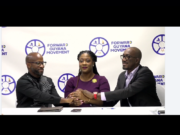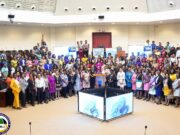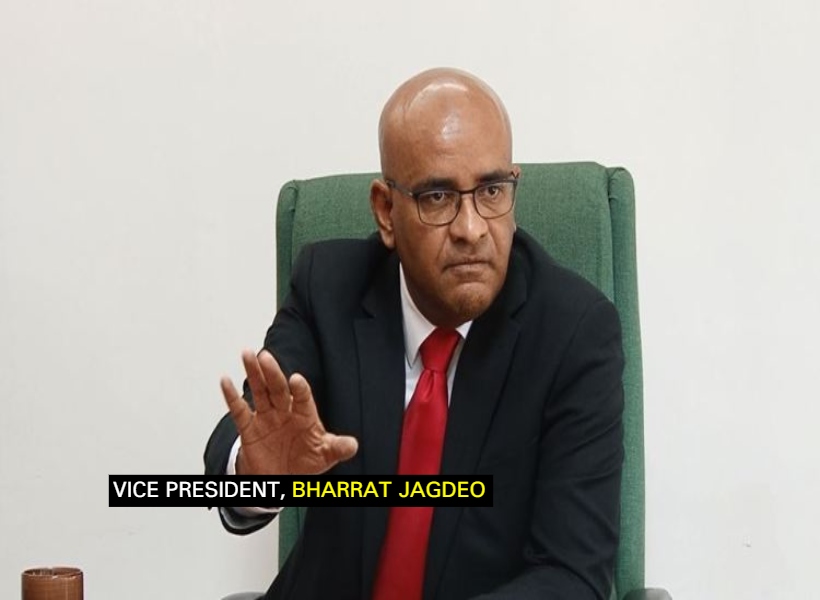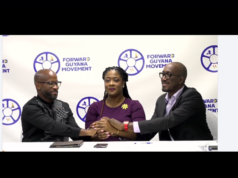If Venezuelan President, Nicholas Maduro would violate an agreement he signed in Barbados to allow opposition members to contest his country’s 2024 elections, even if it means attracting crippling economic sanctions, then what are the implications for Guyana? Should we be concerned?
Vice President, Dr. Bharrat Jagdeo today described such a question as a minefield and steered clear of setting of any tensions, especially at a time when Guyana is engaged in peacekeeping and confidence building exercises with Venezuela. This is in keeping with the provisions of the Argyle Agreement signed in St. Vincent and the Grenadines. That pact was signed as a means of ensuring both parties avoid any words or actions that would disturb regarding peace due to Venezuela’s spurious claims over the Essequibo region.
Jagdeo said he, as well as the government, has taken note of Venezuela’s violation of a key agreement inked in Bridgetown, Barbados last year October. The US had temporarily repealed a handful of sanctions imposed against Venezuela with the understanding that it would allow opposition elected candidates to compete in free and fair presidential elections to be held in the second half of 2024.
After the Barbados agreement, the United States gave the green light to oil giant Chevron to do business with Venezuela and even arranged a prisoner swap with Maduro, who freed several Americans.
The US also granted key licenses so that Trinidad and Tobago could move ahead with a major gas production deal with Venezuela. That deal, critical to the CARICOM state’s ailing gas sector, would allow it to produce about 300 million cubic feet of gas per day from the Dragon field located in Venezuela’s maritime borders.
In spite of receiving much needed sanctions relief, Venezuela’s Supreme Court, loyal to Maduro, on January 26, 2024 upheld a 15-year ban on the president’s main opponent in elections, Maria Corina Machado as well as a possible opposition stand-in, two-time presidential candidate Henrique Capriles.
In response, the Joe Biden administration reimposed sanctions on Venezuela. Specifically, State Department spokesperson Matthew Miller said in a statement that the United States will not renew a relief to Venezuela’s oil and gas sector beyond its expiration date of April 18.
Additionally, the United States is revoking General License 43, which authorizes transactions between the U.S. persons and Minerven, the Venezuelan state-owned gold mining company.
In the face of Venezuela’s breach of the Barbados agreement, Jagdeo said clearly that companies that were contemplating investing in the Spanish speaking country will now be constrained.
With respect to implications for Trinidad and Tobago, Jagdeo said authorities there conduct negotiations with caution.
He said too that Venezuela’s actions come as no surprise, especially when one considers Guyana’s history with its western neighbour. Jagdeo reminded that Venezuela continues to reject the 1899 Arbitral Award, which emphatically states that the Essequibo region belongs to Guyana.
“And if they could repudiate that agreement issued by an independent tribunal then it (Venezuela) cannot, in my view, be a trustworthy partner in negotiations until it demonstrates otherwise,” the Vice President said.
While he did not share his thoughts on what Venezuela’s actions could mean for the Argyle agreement, he alluded that Guyanese authorities are always on high alert regarding Venezuela’s affinity for extremism.









